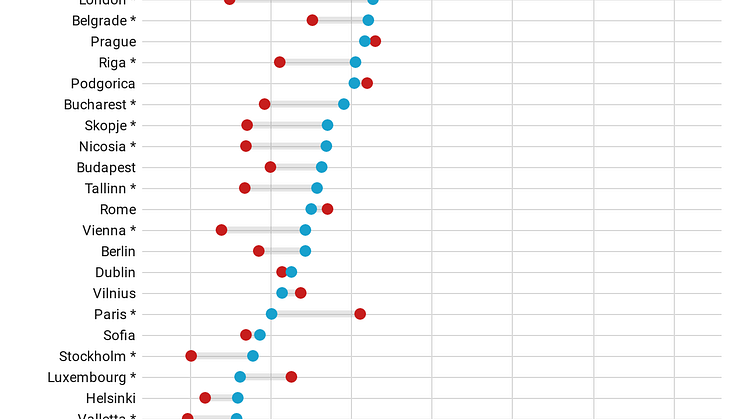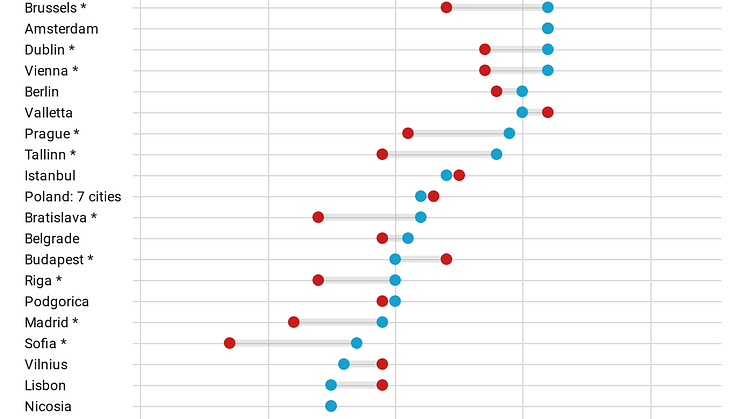
News -
People in Europe’s capitals more satisfied with their lives
People living in the capital cities in Europe generally have a better quality of life and report higher life satisfaction than those living in other parts of the country. Capital cities also have a larger proportion of people who report feeling being able to cope during times of hardship than other urban centres and rural regions.
Eurofound’s new analysis of the latest European Quality of Life Survey (EQLS) compares quality of life and well-being, quality of society, and quality of public services in Europe’s capitals and major cities with respective national averages. The study not only gives an indication of what perceptions of quality of life is like for the 48 million people that live in capital cities in the EU, but also other major European cities such as Istanbul and Belgrade.
In addition to a generally higher life satisfaction, capital city residents tend to be more satisfied with how democracy works in their country compared to the population outside the capital. This difference is largely associated with socioeconomic background, which on average is more advantageous in capital cities. Capital city residents also tend to have greater trust in national institutions and be more critical of local or municipal authorities than people in the rest of the country.

Capital city residents tend to be more satisfied with how democracy works in their country. Get the data here.
Despite the greater availability of public services in capital cities, residents do not always rate the quality of these services higher than people outside the capital. For instance, they give lower ratings for the education system. Quality of public transport, on the other hand, is rated higher by people in capital cities, even though they commute for longer than people in other parts of their country.
Housing insecurity is a notable problem in many capital cities – of all the indicators examined, more capital cities fall behind the rest of the country on this indicator by a significantly larger gap.
 Capital city residents are more likely to report housing insecurity. Data available here.
Capital city residents are more likely to report housing insecurity. Data available here.
Despite concerns of a growing pan-European disconnect between rural and urban life, the differences between the north, south, east and west of Europe are as apparent in the case of capital cities as they are for countries in general. This shows that national-level factors and policies are still a primary determinant of well-being outcomes of cities in different countries.
This research from Eurofound is the latest to contrast life for those inside and outside urban centres, and complements both the 2019 European Jobs Monitor report, which showed that metropolitan regions had the fastest employment growth over the last decade, and the 2019 analysis of EQLS data on rural Europe, which showed that people in rural Europe were more likely to report difficulty in making ends meet.
Read more:
- Policy Brief: What makes capital cities the best places to live?
Read further:
- Policy Brief: Is rural Europe being left behind?
- Publication: European Jobs Monitor 2019: Shifts in the employment structure at regional level
- Data and resources: Regional shifts in employment structure 2002-2017





